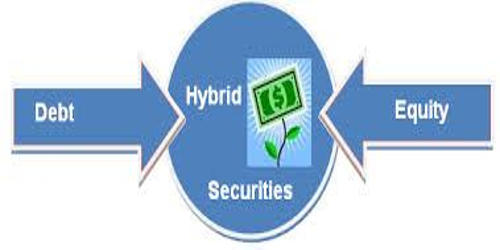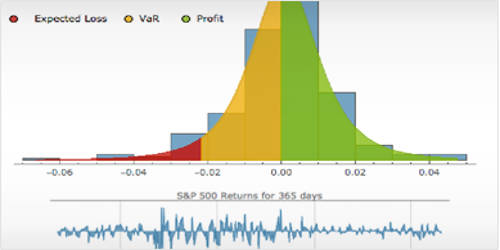A hybrid security is single financial security that combines two or more different financial instruments. Hybrid securities are a broad group of securities that combine the characteristics of the two broader groups of securities, debt, and equity. They are investment instruments that combine the features of pure equities and pure bonds. They are bought and sold on an exchange or through a brokerage. It’s a type of security that combines elements of the two broader groups of securities – debt and equity.
Hybrid securities pay a predictable (fixed or floating) rate of return or dividend until a certain date, at which point the holder has a number of options, including converting the securities into the underlying share. These securities tend to offer a higher return than pure fixed income securities such as bonds but a lower return than pure variable income securities such as equities. The most common type of hybrid security is a convertible bond that has features of an ordinary bond but is heavily influenced by the price movements of the stock into which it is convertible.
Hybrid securities are bought and sold on an exchange through a brokerage. They are considered less risky than pure variable income securities such as equities but riskier than pure fixed income securities. Therefore, unlike with a share of stock (equity), the holder enjoys a predetermined cash flow, and, unlike with fixed interest security (debt), the holder enjoys an option to convert the security to the underlying equity. Other common examples include convertible and converting preference shares.
A hybrid security is structured differently than fixed-interest securities. They can be viewed as a form of esoteric debt and may be difficult to sell due to their complexity. While the price of some securities behaves more like that of fixed-interest securities, others behave more like the underlying shares into which they may convert. Some hybrids return their face value to the holder when they mature, while others have tax advantages.
Examples
A most common type of hybrid security is convertible bonds, which allow investors to earn a fixed interest rate and also to take exposure to the company’s stock.
A convertible bond is a bond that can be converted into common shares of the issuer. The convertible bonds issued by a company can be converted into a fixed number of stock shares of that company. A convertible bond can be valued as a combination of a straight bond and an option to purchase the company’s stock.
Holders of preferred stocks receive dividends before the holders of common stocks. Also, the dividend received by the holders of preferred stocks is usually different from the dividend received by the holders of common stocks.
A redeemable, or callable, preferred stock confers the issuer to repurchase the stock at a preset price after a specified date, converting it to treasury stock. Therefore, if interest rates decline, the company has the flexibility to redeem the stock and subsequently re-issue it at a lower rate, reducing its cost of capital.
















